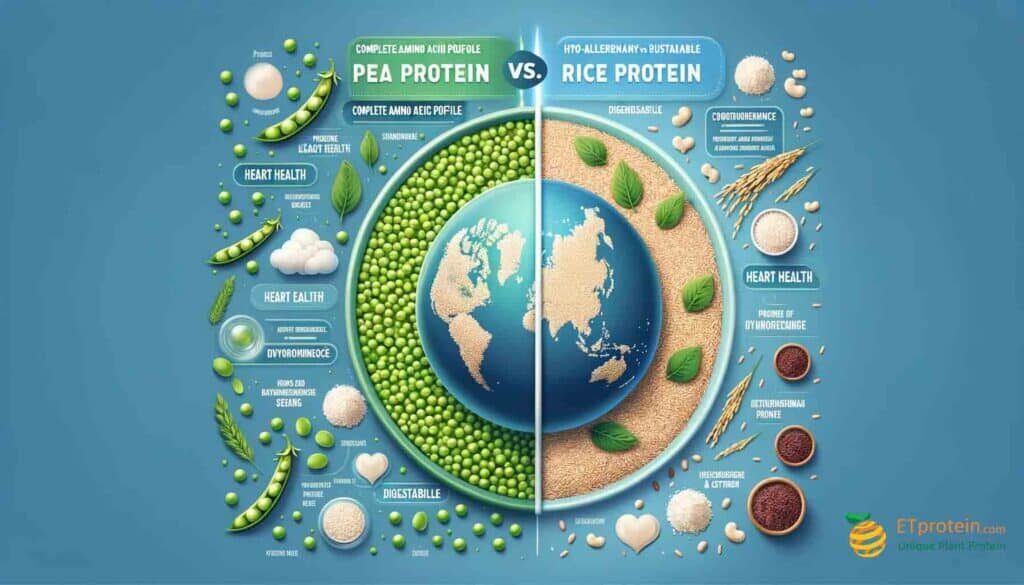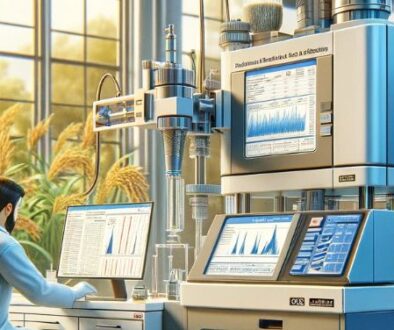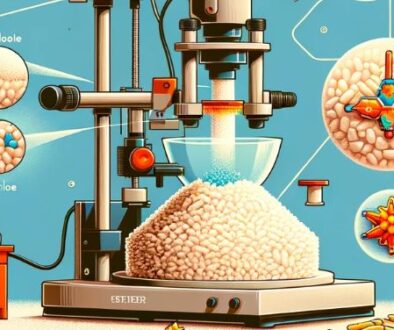Pea Protein vs. Rice Protein: An Expert Analysis
Explore pea protein vs. rice protein: nutritional benefits, environmental impact, and why ETprotein offers the best plant-based protein options.
In the quest for optimal nutrition and wellness, the debate between pea protein and rice protein has garnered significant attention. As consumers become increasingly conscious of their dietary choices, particularly within the plant-based community, understanding the nuances of these protein sources is essential. This article aims to provide a comprehensive comparison of pea protein and rice protein, drawing on scientific research, nutritional expertise, and industry insights to guide your dietary decisions.
Understanding Protein Quality
Protein quality is a measure of how well a protein source provides the essential amino acids needed by the body. The Protein Digestibility Corrected Amino Acid Score (PDCAAS) is a common metric used to evaluate protein quality, with a score of 1.0 indicating a protein source that meets or exceeds the body’s amino acid requirements.
Pea Protein: A Complete Plant-Based Option
Pea protein, derived from yellow split peas, has emerged as a formidable plant-based protein source. It boasts a PDCAAS score close to 1.0, making it one of the few plant proteins to offer a complete amino acid profile. This is particularly significant for vegans and vegetarians seeking to meet their protein needs without animal products. Pea protein is rich in branched-chain amino acids (BCAAs), especially arginine, which are crucial for muscle growth and recovery.
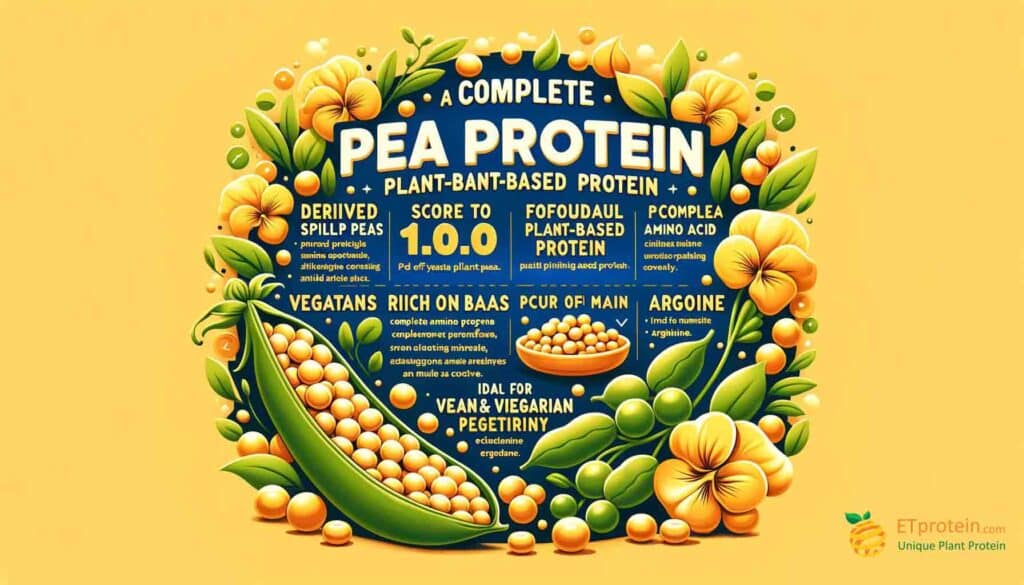
Rice Protein: Hypoallergenic and Easily Digestible
Rice protein, extracted from brown rice, is valued for its hypoallergenic properties and ease of digestion. Although its PDCAAS score is slightly lower than pea protein‘s, indicating a less complete amino acid profile, it remains a viable protein source for many. Rice protein is especially high in cysteine and methionine, but lower in lysine. To counteract this, it is often combined with other protein sources to achieve a balanced amino acid profile.
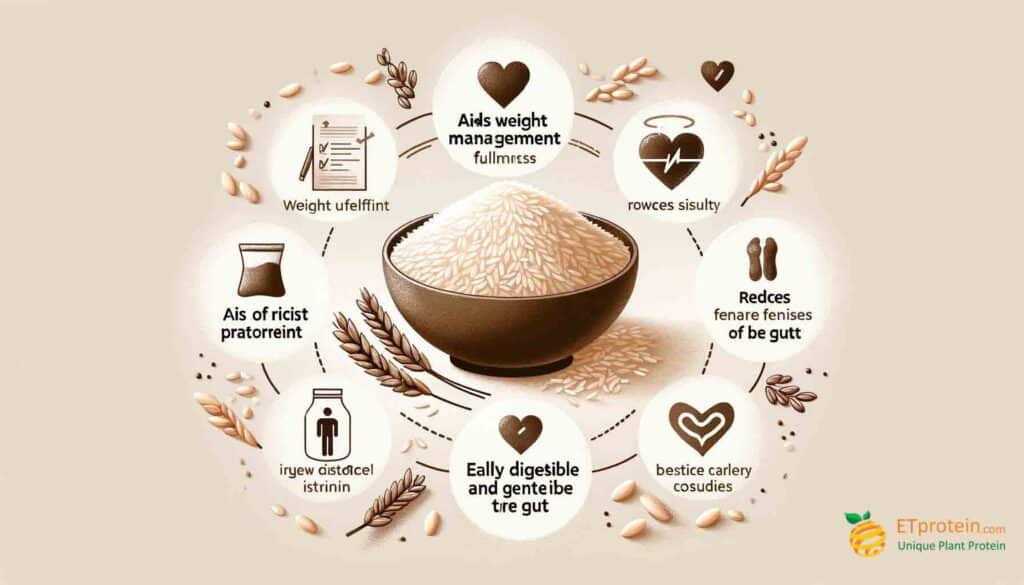
Nutritional Benefits and Considerations
Both pea and rice proteins offer unique nutritional benefits, making them suitable for different dietary needs and preferences.
Pea Protein: Heart Health and Kidney Function
Pea protein has been linked to positive effects on heart health, including lowered blood pressure and improved cholesterol levels. Its rich arginine content may also benefit kidney function by promoting healthy blood flow.
Rice Protein: Weight Management and Gut Health
Rice protein can aid in weight management due to its ability to provide a feeling of fullness and reduce overall calorie intake. Additionally, being easily digestible, it is gentle on the gut, making it an excellent choice for individuals with sensitive stomachs or digestive issues.
Environmental Impact and Sustainability
The environmental footprint of protein sources is an important consideration for many consumers. Both pea and rice proteins are more sustainable than animal-based proteins, requiring less water and land and producing fewer greenhouse gases. Pea protein, in particular, has a lower environmental impact due to peas’ nitrogen-fixing abilities, which enrich the soil and reduce the need for synthetic fertilizers.
Application and Taste
When it comes to incorporating these proteins into your diet, both pea and rice proteins are versatile. They can be found in protein powders, bars, and a variety of meat substitutes. Pea protein tends to have a slightly earthy taste and a thicker texture, making it well-suited for shakes and baked goods. Rice protein is often described as having a milder flavor and a lighter texture, ideal for smoothies and protein bars.
Choosing the Right Protein for You
The decision between pea protein and rice protein ultimately depends on your individual health goals, dietary preferences, and any food sensitivities. For those seeking a complete protein with muscle-building benefits, pea protein is a robust choice. Rice protein, on the other hand, may be preferable for those with digestive sensitivities or looking for a hypoallergenic option.
Why Choose ETprotein’s Pea and Rice Proteins
At ETprotein, we are committed to providing high-quality, sustainably sourced pea and rice proteins that meet the diverse needs of our customers. Our pea protein is carefully extracted to preserve its high amino acid profile, making it an ideal choice for muscle growth and recovery. Our rice protein is produced with an emphasis on hypoallergenic processing, offering a gentle yet effective protein option.
Our products are designed with your health and the planet in mind, ensuring that you can achieve your dietary goals without compromising on taste or environmental responsibility. Whether you’re leaning towards pea protein for its complete amino acid profile or rice protein for its digestibility and hypoallergenic properties, ETprotein has you covered.
Conclusion
In the comparison of pea protein versus rice protein, it’s clear that both offer unique advantages. By understanding the nutritional profiles, health benefits, and environmental impacts of each, you can make an informed decision that aligns with your dietary needs and values. With ETprotein’s commitment to quality, sustainability, and customer satisfaction, choosing our pea or rice protein products is a decision you can feel good about, both nutritionally and ethically.
About ETprotein:
ETprotein, a reputable pea protein and rice protein Chinese factory manufacturer and supplier, is renowned for producing, stocking, exporting, and delivering the highest quality organic bulk vegan protein and plant proteins. They include Organic rice protein, clear rice protein, pea protein, clear pea protein, pumpkin seed protein, sunflower seed protein, mung bean protein, etc. Our offerings, characterized by a neutral taste, non-GMO, allergen-free attributes, cater to a diverse range of industries. We serve nutraceutical, pharmaceutical, cosmeceutical, veterinary, as well as food and beverage finished product distributors, traders, and manufacturers across Europe, USA, Canada, Australia, Thailand, Japan, Korea, Brazil, and Chile, among others.
Our specialization includes exporting and delivering tailor-made protein powder and finished nutritional supplements. Our extensive product range covers sectors like Food and Beverage, Sports Nutrition, Weight Management, Dietary Supplements, Health and Wellness Products, and Infant Formula, ensuring comprehensive solutions to meet all your protein needs.
As a trusted company by leading global food and beverage brands and Fortune 500 companies, ETprotein reinforces China’s reputation in the global arena. For more information or to sample our products, please contact us and email sales(at)ETprotein.com today.

